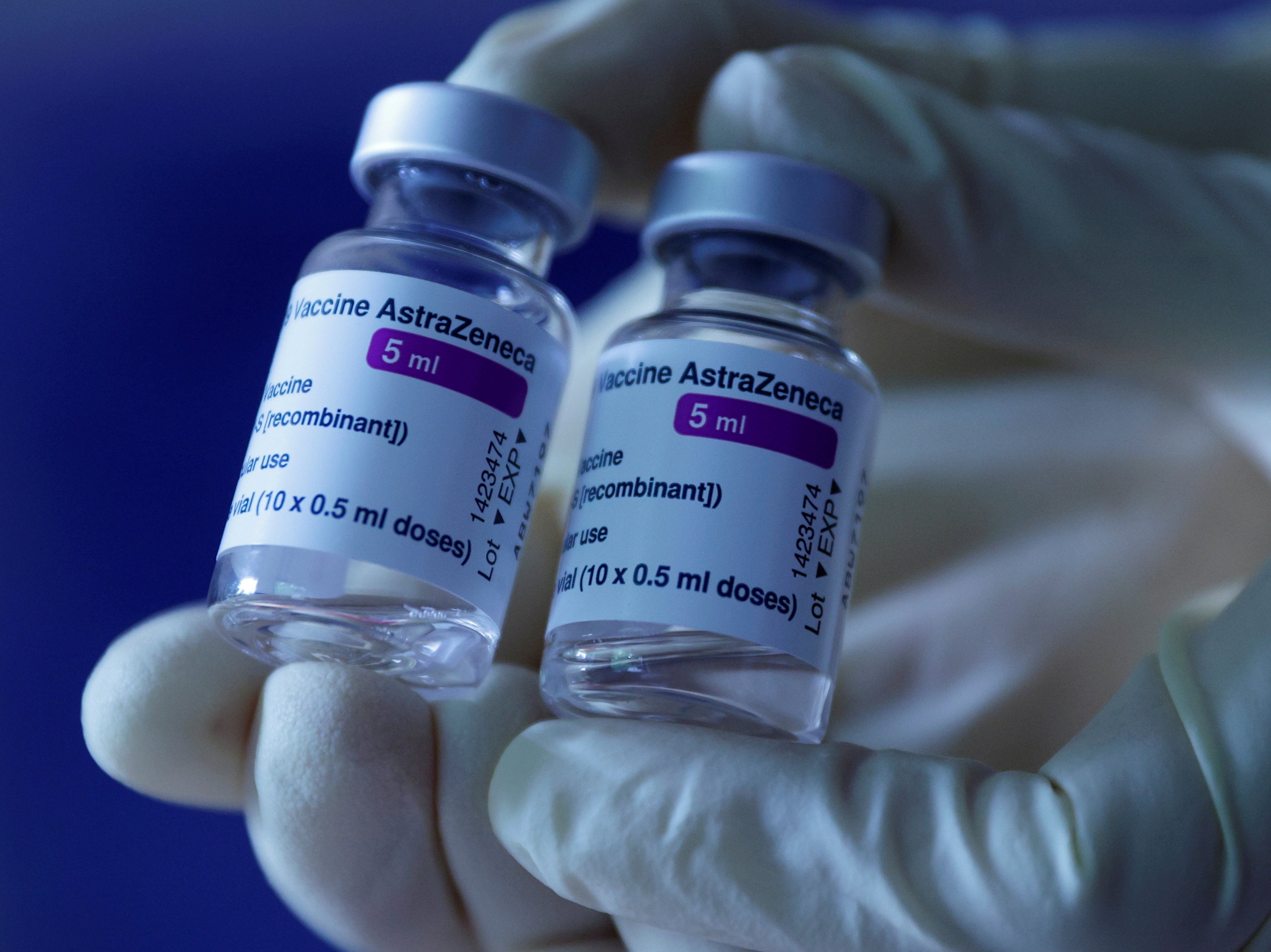Covid: AstraZeneca antibody treatment more than 80% successful at preventing infection
Pharmaceutical giant hopes therapy will provide protection for people who do not respond well to vaccines

Your support helps us to tell the story
From reproductive rights to climate change to Big Tech, The Independent is on the ground when the story is developing. Whether it's investigating the financials of Elon Musk's pro-Trump PAC or producing our latest documentary, 'The A Word', which shines a light on the American women fighting for reproductive rights, we know how important it is to parse out the facts from the messaging.
At such a critical moment in US history, we need reporters on the ground. Your donation allows us to keep sending journalists to speak to both sides of the story.
The Independent is trusted by Americans across the entire political spectrum. And unlike many other quality news outlets, we choose not to lock Americans out of our reporting and analysis with paywalls. We believe quality journalism should be available to everyone, paid for by those who can afford it.
Your support makes all the difference.AstraZeneca’s new Covid antibody shot, for patients do not respond well to vaccines, is said to be more than 80 per cent effective over six months.
The ground-breaking treatment, called AZD7442 or Evusheld, was found to reduce the risk of symptomatic Covid-19 by 83 per cent.
The British-Swedish pharmaceutical company hopes the treatment will provide protection to the two per cent of the world’s population considered at increased risk of an inadequate response to a Covid vaccine.
This includes people with blood cancers or other cancers being treated with chemotherapy, patients on dialysis, those taking medications after an organ transplant or immunosuppressive drugs for conditions including multiple sclerosis and rheumatoid arthritis.
The treatment is given as two sequential injections in the arm in one go.
AstraZeneca said there had been no cases of severe Covid or Covid-related deaths among those given the shot during the six-month Provent trial.
Hugh Montgomery, AZD7442 principal investigator, said protection was also maintained despite the surge of the Delta coronavirus variant.
Among those given a placebo injection, there were five severe cases of the disease and two deaths during the study.
In a separate trial on patients suffering from mild to moderate Covid-19, a higher dose of AZD7442 was shown to cut the risk of severe Covid or death by 88 per cent, when treated within three days of first symptoms.
Mr Montgomery, professor of intensive care medicine at University College London, said: “These compelling results give me confidence that this long-acting antibody combination can provide my vulnerable patients with the long-lasting protection they urgently need to finally return to their everyday lives.
“Importantly, six months of protection was maintained despite the surge of the Delta variant among these high-risk participants who may not respond adequately to vaccination.”
AstraZeneca’s Provent trial involved 5,197 participants who were split into two groups at random, with one volunteer receiving a placebo injection of saline solution for every two people receiving a 300mg shot of AZD7442.
The trial took place at 87 sites across the US, UK, Spain, France and Belgium.
Volunteers will continue to be followed up for 15 months as part of the study.
Have you got a story you would like us to report on? Contact us by clicking here
Join our commenting forum
Join thought-provoking conversations, follow other Independent readers and see their replies
Comments